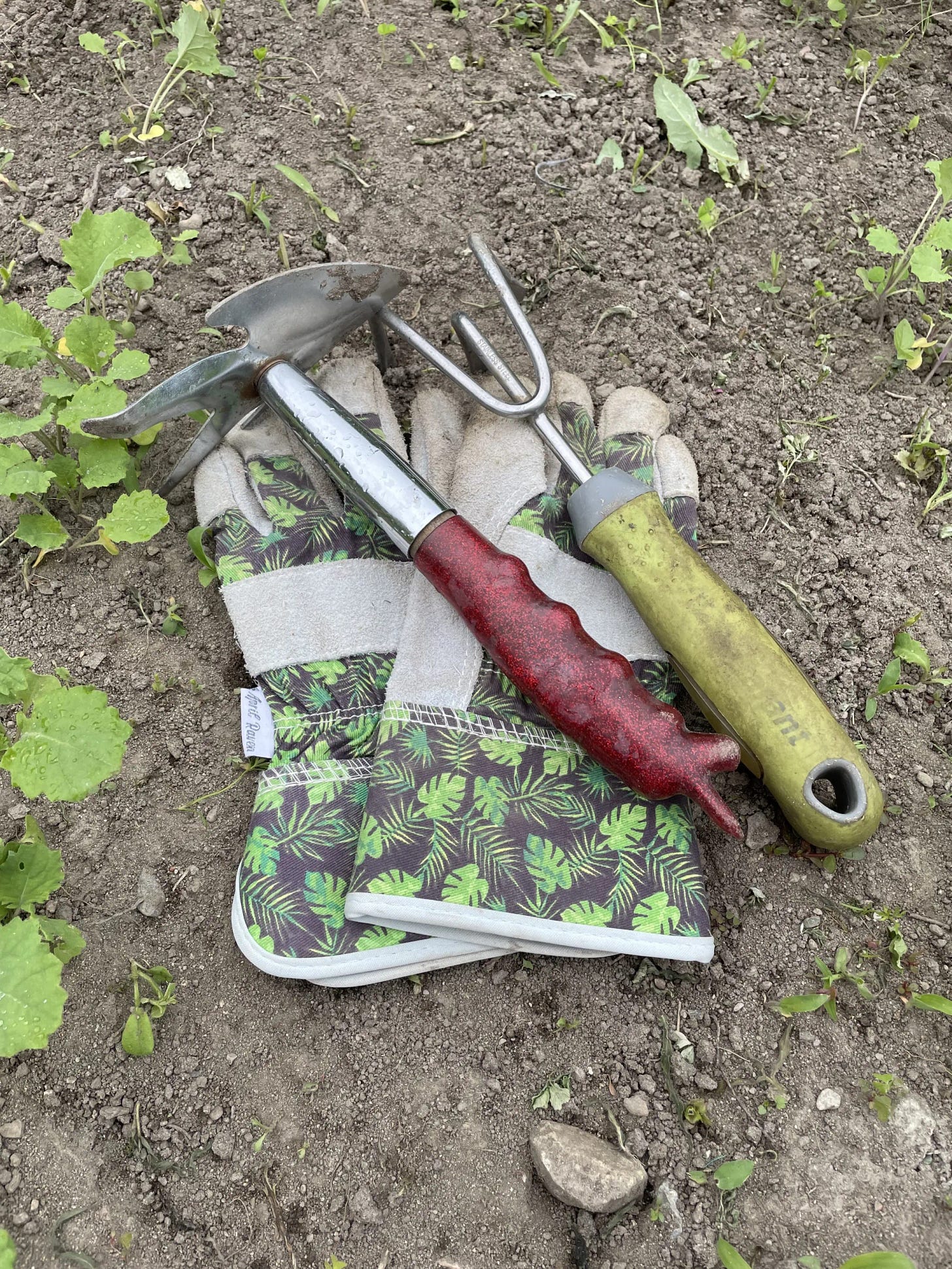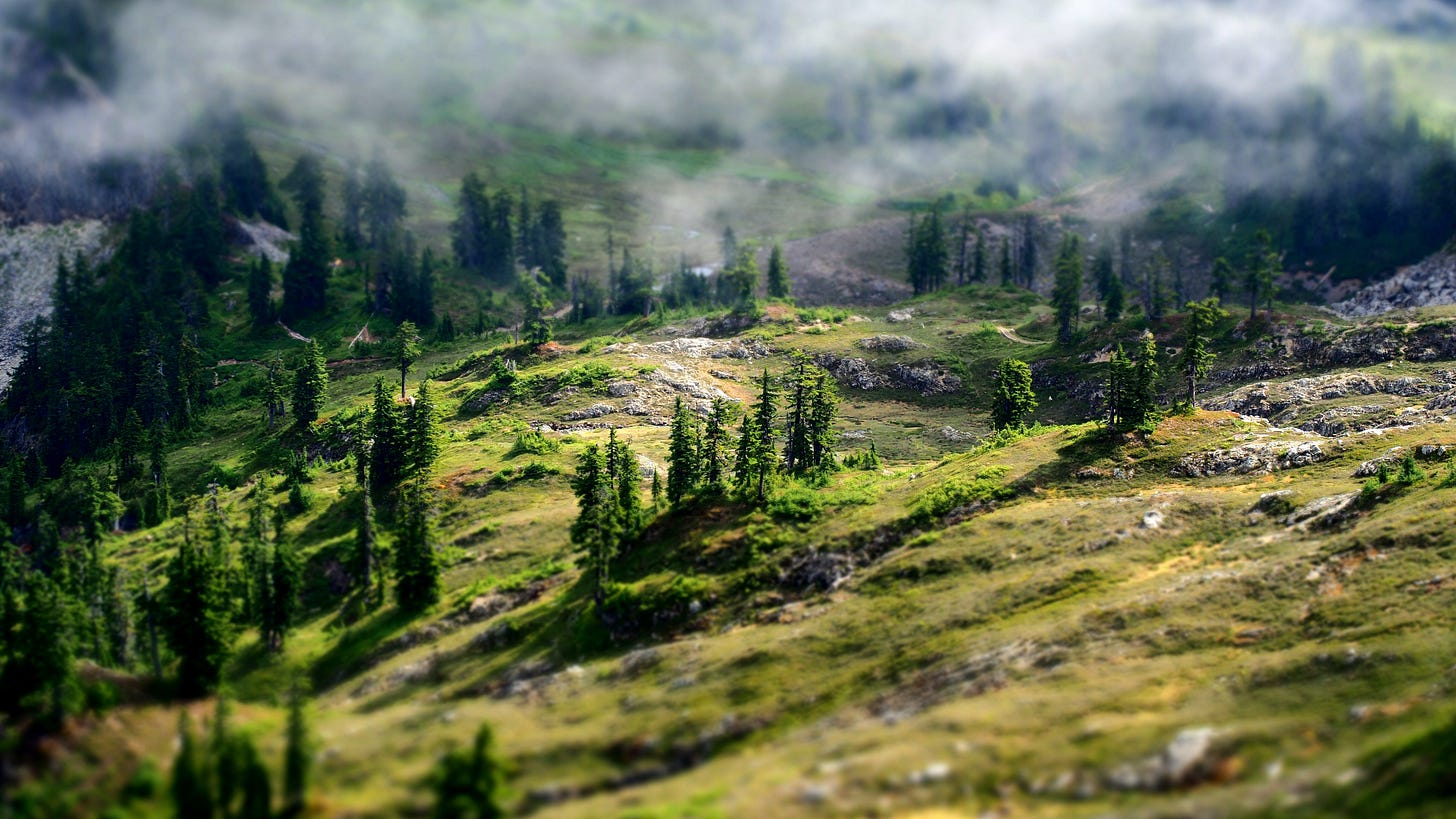Friday Notes - Ecological Self-Care and Caring for the Earth
Sharing a blog post I posted exactly one year ago today - perhaps we need a yearly reminder
Welcome! I am Jessica Hetherington, and this newsletter is about faith and climate action. You can subscribe by clicking here:
One-Year Anniversary Special: Don’t forget! You have until June 20, 2023, to choose a paid subscription and receive 20% off for one year. That’s $6.40/mo or $64/yr!
This is the week where we are saying our final goodbyes to Claire, mother, grandmother, great-grandmother, and friend to so many. My offering to you today is something that I have had to remind myself of as I have paced myself this week. Published exactly one year ago today, this blog post reminds us of the need to care for ourselves as part of caring for the Earth. Ecological self-care is radically countercultural right now. It shouldn’t be.
Enjoy, and take time to rest today.
Ecological Self-Care and Caring for the Earth
I have been extremely fatigued lately. There are a few reasons for it, most of which I am aware of. When talking with a good friend who knows all too well about fatigue and the wear it can take on the body and spirit, she said to me, “There’s also an emotional weight to the environmental work that you are doing.” She was referring to the recent launch of my ecotheology ministry and this website, as well as the year of work that has been building up to it. I hadn’t thought of that; I have found this work to be so exciting and fulfilling that I hadn’t thought it could, at the same time, be contributing to the fatigue that I have been experiencing.
Learning About the Ecological Crisis and Faith Can be Exhausting
But it makes sense. Every day I have been reading articles, blog posts and books on the ecological crisis, climate change, and the perils of ignoring or underestimating both. Every day I have been reading statistics about endangered species and communities that are suffering. Add to this, following the news cycles about human suffering and oppression everywhere we turn. Every day, I am being bombarded by the cries of the world, both human and more than human. It can be exhausting.
As an ecotheologian and minister, I have also been spending time every day reflecting on what our traditions and scriptures have to say about the ecological crisis and climate change and working on sermons, writings, and learning activities. I have been spending time in prayer, asking God to lead me in my work, to help me find what it is that I am to do and say. This is the work that I do, every day. This, too, can be exhausting.
We are Interconnected and Interdependent with the Earth
It is no wonder, then, that I am tired. We are literally interconnected and interdependent with everything that exists on the Earth; what happens to one part of the Earth is happening to me, happening to each one of us. When we try not to think about the rising temperatures or species that are endangered, we can keep the pain at bay. We can keep ourselves from feeling bombarded, from feeling too much. From feeling the pain and horror, from the grief and lament. But when we let it in, as God calls us to do, it can lead to all of these emotions and more. It can lead to exhaustion. Emotional, spiritual and physical exhaustion.
(At least, we can keep these things at bay for a time, but only for so long. Denial and ignoring the reality of the world comes at a great cost to our sense of self and well-being, and eventually fails anyway.)
That’s what I have been feeling, lately. Even as building my ministry is so exciting, I am exhausted because I am letting in the data, the facts, the reality of what is happening to the Earth, to Earth’s human and more-than-human creatures. I am letting in the reality that this is happening to me, too.
What is the Solution? Self-Care
I am aware that I am not alone in what I am feeling; many people who work on the lines of the ecological crisis and climate change experience this. What is the solution, then? While fatigue after a stressful period or a busy time is normal, if the circumstances that are causing the fatigue are not addressed, it is no longer sustainable. How do I, and others, sustain ourselves in the work of opening up to the ecological and climate crises, and be energized, rather than tired? How do we maintain our mental, spiritual and physical health when doing the work of caring for the Earth?
The answer, of course, is self-care. Self-care is a word that we see everywhere; articles in the newspaper, and on social media. You may have heard your doctor, naturopath, or therapist recommend it. Self-care can mean a lot of different things, depending on who is using the term. The general definition, though, is the ability to care for one’s own physical, emotional, and psychological health with and without the help of healthcare professionals. Self-care includes such aspects as nutrition, physical exercise, living conditions, social relationships, and more. It should be pointed out that self-care has socioeconomic dimensions and political implications to it, for the ability to care for oneself is affected by gender inequality, racism, poverty, ableism, and other issues of inequity.
To place my situation and the framework for this post in context, I am a white, cis-gender woman who is well-educated and financially secure. It is within those parameters, then, that I am exploring the idea of how I can care for myself while also caring for the Earth in the ways that I am called to do.
The Need for Ecological Self-Care
I am referring here to ways for me and others to care for ourselves when doing the work of caring for the Earth as ecological self-care. That is because I am thinking specifically of what we can do to care for ourselves in the context of the Earth and the ecological work we are engaged in. There is the term “eco self-care” out there, but it mostly refers to “eco-friendly” forms of standard self-care (especially, the products that we buy!).[i]
One of the things I have been told in the past, when dealing with stressful situations at work, for example, is to make sure I take time to get out into nature. This has been offered to me by my physician, as well as other health care professionals. They are not environmentalists; instead, it is coming from the commonplace experience that people have that when they are ‘out in nature,’ their stress levels go down.
Getting Outside
So on the day that I am writing this, that is what I decided to do. After lunch, when my energy was flagging, I went and did some weeding of my vegetable garden. I let the sun warm my body, let my mind get clear beyond “Is this kale, or is this a weed?” kind of thoughts, and took my time. After about an hour, I came inside, refreshed and renewed. I was still tired, but it had less of that deep weariness feeling that I have been having lately. It felt like self-care.
Focusing on the Beauty and Wonder of the Earth in Our Work
I realize, too, that I cannot spend all of my time focused on the disaster data of the ecological crisis and climate change. I need to also focus my reading on the beauty of the world around us; on the flora and fauna that marks my yard, my neighbourhood, and the watershed I live in. I need to focus my reading on stories of ecological restoration, and activism leading to positive change.
A Prayer Life of Creation and Goodness; Sabbath Rest
It is essential, too, that I nurture my own prayer life, grounding it in the fact of God’s good creation and the love, forgiveness and compassion offered to me by God. It is important that I don’t just ask God what God is calling me to do, but allow God to show me where to slow down, and where to rest. One thing that I am not very good at, I admit, is following the fourth commandment to observe the Sabbath! Perhaps this is the case for you, too. No work, whether in ecology, health care, teaching, or anywhere else is so essential that we cannot take one day off a week to rest in and with God.

Delight in God’s Good Creation
Self-care also includes taking time to delight in God’s good creation! To get out and do the things we love, whether that is hiking, growing flowers, or going to the beach. I find joy in watching nature shows on TV, too.
Take Naps
Of course, self-care does include naps! We will get tired, physically and emotionally, doing this work. Taking time to rest, eat good food, to be with our family and friends, the basic work of taking care of ourselves is essential.
Do This Work in Community
Finally, it is important to remember the context in which we are doing the work of caring for the Earth. Just as our ability to care for ourselves is mediated by the intersections we sit at of gender, race, socioeconomic positioning, and more, the reality of the ecological crisis and our power to respond is also mediated. Wherever we are situated, doing this work in community, with our communities of faith, in civic groups committed to environmental change, and with friends and loved ones who are committed, is also a way to care for ourselves and each other.
Ecological Self-Care is Part of Caring for the Earth
The work that we are called to do to address climate change and other aspects of the ecological crisis is long; it is hard. Like any other good work, though, we are not expected to exhaust ourselves in the doing. I am grateful to my friend who offered me insight into one reason I’m so tired these days. I have begun, starting the day I am writing this, to be intentional in my self-care, so that I don’t burn out and become ineffective in working for change. Self-care, in this context, is a part of caring for the Earth. We are all interconnected; it is all of a piece. Caring for myself in this way is one more way that I can love the Earth. May it be the same for you.
What do you do for ecological self-care? How do you sustain yourself in the long work? Please let me know in the comments! (The comments section has been unlocked for this post.)
[i] The term ‘ecological’ can be, and is used, within systems thinking around self-care, that may or not refer to the physical environment of the Earth. I am limiting my use of the term in the way described in the post above.






